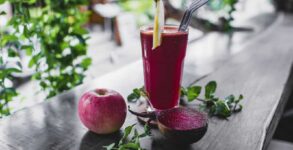During a gym session, I observed my friend, professional weightlifter and gold medalist Ahsaan Aslam, abstaining from water. As a young girl trying to lose weight and reclaim control of her health then, his practice of Ramadan fasting underlying values of resilience and discipline is what caught my attention. Over the last years in my health-coaching practice, I’ve witnessed individuals, irrespective of faith, embrace Ramadan fasting as a way of imbibing the much poplar intermittent fasting, emphasizing self-control by abstaining from food and drink from dawn till dusk.
If you strive to enhance your well-being during Ramadan, here’s the ultimate guide. Suhoor, the pre-dawn meal, ignites your day with vital energy. In contrast, Iftar (literally meaning breakfast), the evening meal, commences with dates and water to replenish energy and hydration, followed by a balanced meal.
Ramadan 2024: Indulge in 5 Irresistible Traditional Iftar Desserts Worldwide
The pressing question I am often asked is: What should one eat during Ramadan fasting?
Let’s dive into the essentials.
- Complex Carbohydrates: Opt for whole grains like millets, brown rice, oats, quinoa, and whole wheat. Unlike sugary snacks, complex carbohydrates offer a sustained energy release, stabilizing blood sugar levels, and preventing energy crashes. Prioritize these during Suhoor for enhanced satiety and mental clarity.
- Lean Proteins: Include skinless poultry, fish, lentils, beans, paneer, edamame, and tofu. These are crucial for muscle repair and growth. Incorporating them into your Iftar meal replenishes lost amino acids, promoting muscle recovery and reducing overindulgence. I recommend you consume curd or yogurt either plain or as lassi or chaas to promote good bacteria essential for your gut health during the hot months of Ramadan.
- Fruits and Vegetables: Diversify your Suhoor and Iftar with a plethora of fruits and vegetables. Rich in electrolytes and fibre, they aid in hydration, digestion, and overall gut health. I always say, one must eat their rainbow- including a colourful array ensures a variety of essential nutrients. If you’re going through a period of stress, double down on citrus fruits for they are especially beneficial for adrenal health.
- Healthy Fats: Integrate nuts, seeds, avocados, cold pressed coconut oil and olive oil for essential fatty acids vital for brain health and nutrient absorption. These promote satiety, curbing hunger, and sustaining energy levels throughout the day.
- Hydrating Foods: Hydration is paramount during Ramadan, particularly in warmer climates such as ours. Preventing dehydration-associated symptoms like fatigue and headaches is something one must be vigilant of. You will be surprised to know, mashed vegetable soups are superior choice as opposed to raw vegetable salads as the former will keep you fuller for longer.
Next step let’s navigate through foods to avoid.
- Sugary Foods and Drinks: Limit sugary snacks and carbonated beverages. While they offer quick energy, sugary treats cause rapid fluctuations in blood sugar levels, leaving you fatigued and wrestling with mood swings, particularly in the case of children and teenagers. Opt for natural alternatives like fruits and nuts to maintain stable blood sugar levels.
- Spicy and Salty Foods: Minimize consumption of spicy and salty foods to avoid thirst and discomfort. Oregano is an excellent herb one can use if you’re looking to minimize salt. Opt for milder seasonings, lemon, and mild herbs. While picking up packaged foods look for low-sodium options.
- Caffeinated Drinks: I know you’re not going to love what I have to say here, but you are ought to reduce coffee and tea intake. Caffeinated drinks increase urine output and dehydration, disrupting sleep patterns. Caffeine also impacts restlessness and anxiety adversely. Choose caffeine-free alternatives like herbal teas or infused water.
- Fried and Processed Foods: Steer clear of fried and processed snacks high in unhealthy fats, sodium, and preservatives. Fried foods will induce lethargy and bloating.
As a health coach, I advocate for mindful eating as a scientifically proven approach to fostering a healthier relationship with food, especially during Ramadan. Distractions like TV or phones can disrupt this mindful eating process, leading to overeating or mindless snacking. One actionable tip supported by studies, such as those published in the Diabetes Care journal, is to prioritize fat and protein before carbohydrates. This approach, known as food sequencing, can help stabilize blood sugar levels and promote better weight management. A short five-minute walk post meals can ensure you are not faced with energy crashes and bouts of brain fog. By integrating these evidence-based strategies into your eating habits, you can enhance your overall health and well-being during Ramadan and beyond.


















